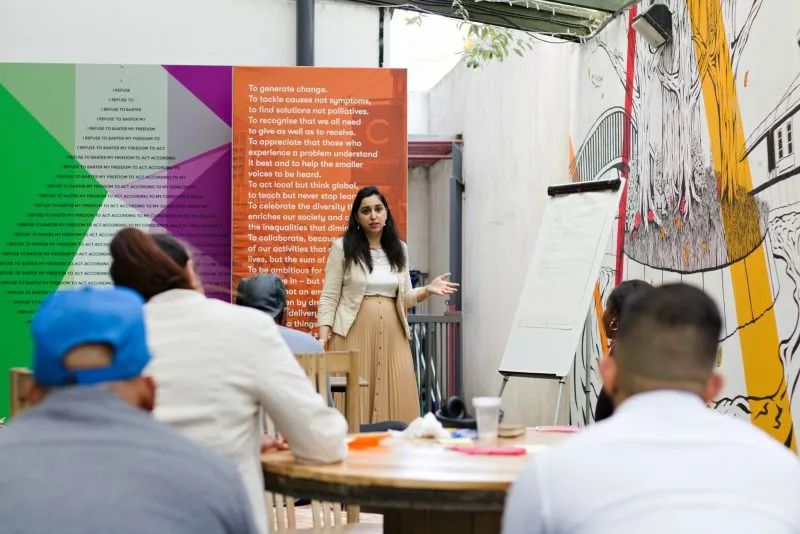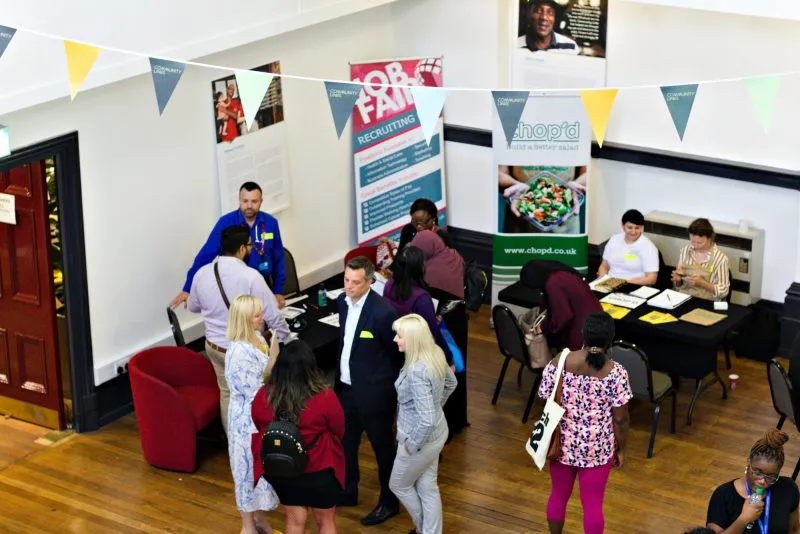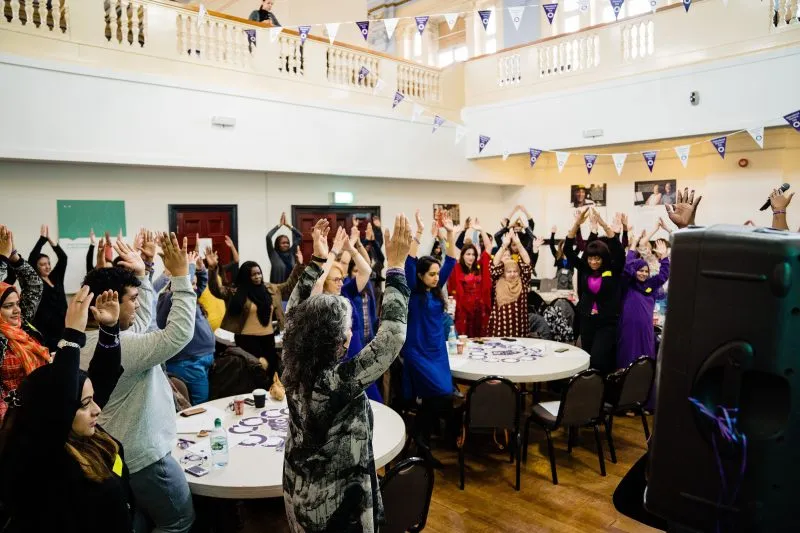Nowadays, having a job just for the time being isn’t always enough to guarantee security. Low pay, insecure work, and unhealthy jobs all undermine our ability to manage and live happy, healthy, fulfilling lives. For young people, developing soft skills and engaging with support and training opportunities are essential to have a sustainable career.
Some social groups face a number of barriers to achieving long-term, sustainable employment. According to the Race at Work Survey, there are around 20.6 million women in the UK who are of a working age population, of which around 2.9 million women (14%) are from a Black, Asian and Minority Ethnic (BAME) background. The government’s Race Disparity Audit in 2017 found that Pakistani and Bangladeshi women were the least likely group to be employed. However, as research by IPPR has shown, this is often a result of a need to develop soft skills rather than lacking qualifications.

At Community Links, we conducted a research project to better understand these barriers, speaking with a number of young BAME women on the Talent Match London programme. With this particular programme, we supported over 400 young people to get into employment and access training opportunities. We also provided in-work support to some of the participants including training and 1-1 guidance.
Through this qualitative research project we have learned a lot about how to provide better support to young BAME women in the early stages of their careers. Below, we have separated our findings into recommendations for:
- Employability professionals
- Employers and recruiters
- Young people and BAME women
Public/social sector employability programmes
- A strong, trusting relationship between advisors and jobseekers plays a huge role as our participants faced a range of social, technical and cultural barriers to employment. Trusted advisors can help participants to identify these barriers and develop soft skills (including confidence building, trust and self-awareness). The impact of this trusting relationship is what we call Deep Value.
- Developing positive relationships between participants (e.g. through team-building activities or a shared WhatsApp group) can also help to develop their peer support networks.
- Identify role models to work with and provide inspiration to young BAME women. This can help to build confidence and motivate programme participants.
- Going the extra mile and providing support at crucial times can develop important trust with participants. Programme plans, budgets and evaluations should be designed to reflect the additional time necessary to develop strong relationships. However, it can sometimes be difficult to ascribe a time or financial cost to the most valuable interventions.

Findings for employers and recruiters
We have spoken to several employers through our employability programmes, and we have found that although most employers do recognise the benefits of having a diverse and inclusive workplace, some are unsure of how to achieve that. We have also found little evidence of proactive policies or monitoring to support diversity. During our focus groups, it appeared that there are still many stereotypes about BAME women in the workplace that persist among employers.
- Employers and recruiters must work hard to identify and tackle their own, often-unconscious biases. This includes developing opportunities to dismantle stereotypes about BAME women in employment.
- Young BAME women can bring a wealth of knowledge and perspectives to a role beyond their formal professional experience. To harness this and support an inclusive workplace, employers should think about how young BAME women can be better supported through recruitment processes and how their different experiences can be valued. Sometimes it is important to “take a risk” on the right candidate.
- Ensure that flexible work options are available for jobs at all levels.
- Recruiters should develop employability fairs where BAME women and employers can meet in order to find new opportunities and dispel stereotypes.
- All employers and recruiters who take diversity and inclusion seriously should collect data, set gender and ethnicity diversity targets and monitor their policies to understand how diverse their workforce really is.

Young people and BAME women
We have held several focus groups with our participants to explore the social and cultural barriers they face to employment. Many participants did not feel confident enough to approach their employer regarding any specific training needs, some struggled with their level of spoken English, and others wanted to move into leadership/management roles but were hesitant to raise this with their employers. Some of the young BAME women felt a lack of understanding from the employers towards their caring obligations. Many felt that their employers were unwilling to be flexible on working hours and that they were unable to discuss this matter with their managers.
- We believe that it is important to consider a wide range of career options, perhaps even breaking some of the stereotypes about industries or sectors where young BAME women are expected to work (or not). This requires researching different careers and training opportunities online, with local employability services and employability fairs.
- We also recommend that young BAME women access assertiveness and confidence-building training. Young people should upskill themselves and seek opportunities to learn about different courses, and alternative career paths such as self-employment.
- Finally, young BAME women should feel empowered to learn from other women from their own backgrounds, whilst expanding their social networks to meet new people.
